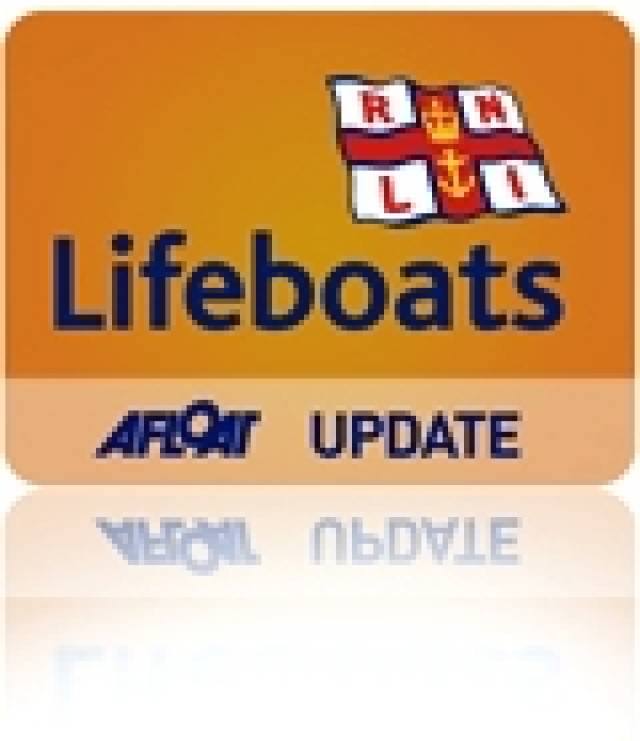#rnli – Nineteen year old Lorcan Hickey from Kinsale in Cork received his Leaving Certificate results this morning (Wednesday 13 August), while heading out to sea on a lifeboat, from the RNLI College in Poole, Dorset. Lorcan is a volunteer lifeboat crewmember with Kinsale RNLI and received his results from his father Peter, over the phone, while away on a lifeboat training course at the RNLI College. The location was appropriate for the teenager, as he recently learned that under the Quercus Programme, he has been awarded a full four year Active Citizenship Scholarship from University College Cork (UCC). This scholarship is being granted based on his voluntary work with the RNLI.
Lorcan joined Kinsale RNLI as a volunteer lifeboat crewmember when he was 17 years old. He has been out on a number of call outs with the Cork lifeboat crew and is currently at the RNLI College with two other Kinsale volunteer lifeboat crew, Colum O'Sullivan and Matthew Teehan. This morning his parents, Peter and Frances Hickey, drove to the Christian Brothers School in Cork to collect his results to ring Lorcan and tell him that he had received 535 points. Lorcan wants to study Biological and Chemical Science in UCC.
Commenting on his results Kinsale RNLI crewmember Lorcan Hickey said, 'I'm delighted with my points. Obviously I would have liked to be with my family today but there was no way I was passing up the opportunity to come over to the RNLI College for lifeboat training. In many ways it has been the perfect place to receive the news and to celebrate tonight with lifeboat crew from all over Ireland and the UK. I am also really proud that the work I do with the charity has enabled me to receive an Active Citizenship Scholarship and I am very grateful to those that selected me for it.'
Loran's father Peter was also delighted back home in Kinsale and added; 'Even though Lorcan wasn't here, he wanted me to ring him the minute I had the envelope in my hands. He even wanted to hear the sound of me opening it. It was just like reliving my own Leaving Certificate experience. We are so proud of Loran and of all the young people who received their results today. Doing what he loves as a volunteer with the RNLI has given him such an incredible opportunities.'
As well as volunteering with Kinsale RNLI Lorcan is also a lifeguard at Garylucas beach.































































